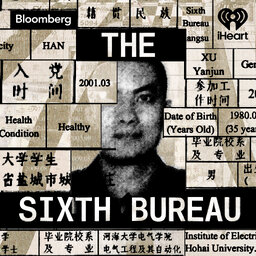Is there enough for everyone?
While the human species is inarguably successful (for now), hundreds of millions of people struggle under daily threats of starvation, physical danger, lack of shelter and disease. And, perhaps more troubling, the numbers indicate it's possible to feed and shelter virtually every single person on the planet -- or is it? Is there enough for everyone, and, if so, why isn't humanity transforming this potential into a reality? Join the guys as they explore the answers to this question, along with its disturbing implications.
Learn more about your ad-choices at https://www.iheartpodcastnetwork.com
In 1 playlist(s)
Stuff They Don't Want You To Know
From UFOs to psychic powers and government conspiracies, history is riddled with unexplained events.…Social links
Follow podcast
Recent clips

Strange News: Trump and Aliens, Andrew Gets Arrested, The Story of Takeru Kobayashi and More
58:32

Introducing: The Sixth Bureau
00:58

What is AI Psychosis?
1:23:50
 Stuff They Don't Want You To Know
Stuff They Don't Want You To Know